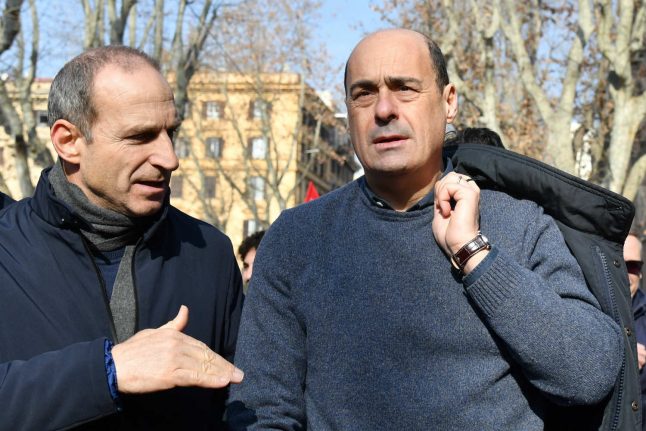The PD was left reeling and languishing in the polls after the anti-establishment Five Star Movement (M5S) and the anti-immigrant League won power in elections and formed a government in June of last year.
The three leadership candidates are little known internationally, with Nicola Zingaretti, who has been compared to Britain's Labour chief Jeremy Corbyn, the favourite to win.
Around 7,000 polling stations, including 150 abroad, are being staffed by 35,000 volunteers with voting due to end at 1900 GMT.
Zingaretti, 53, is currently the president of the Lazio region, which includes Rome, and is a former Italian Communist party member as well as a founding member of the PD in 2007. He was a member of the European parliament and is a supporter of European federalism who has criticised austerity measures.
Roberto Giachetti, 57, is considered the closest candidate to former PD leader and prime minister Matteo Renzi's more centrist free-market politics and was previously a member of the Radical and Green parties. He lost the Rome mayoral election to M5S's Virginia Raggi in 2016.
The third candidate, Maurizio Martina, 40, was agriculture minister in the governments of Renzi and his PD successor, Paolo Gentiloni. He briefly took over as PD leader when Renzi stepped down last year.
The candidates have been using social media to try to get as many people to vote as possible. Zingaretti's campaign team said late Sunday they expected turnout to top 1.5 million.
Those voting must sign a declaration of PD support and pay a fee of €2.
A candidate can win outright with over 50 percent of the vote, or a party conference on March 17th will choose between the top two candidates.
All three candidates have excluded an alliance with the M5S, which won 220 seats in the lower house elections last year compared to the PD's 112.
The rightwing League party won 123 seats but has overtaken the M5S in opinion polls since then thanks largely to League leader and Interior Minister Matteo Salvini's tough anti-immigrant line.
The left is nevertheless finding its feet again, bringing tens of thousands onto the streets of Milan on Saturday for an anti-racism demonstration. The Milan demonstration was a reply to those who have imposed a policy of “closure and exclusion” that has become intolerable, elder PD statesman Romano Prodi told La Repubblica newspaper.
“The anti-racist march and the PD primary are two completely different things. But they are a response to the same sensibility and worries,” said the two-time prime minister and former European Commission president.
Renzi, who resigned after a failed referendum on constitutional reform in 2016 but remained PD leader until last year, voted in the primary in his hometown Florence.
The man who in 2014 became Italy's youngest-ever premier refused to publicly back a candidate, saying the “different movements that were with me over the years have divided themselves among all three candidates”. Renzi, 44, remains popular and has appealed against infighting whatever the result.
READ ALSO: Italy's shattered Democratic Party tries to bounce back



 Please whitelist us to continue reading.
Please whitelist us to continue reading.
Member comments